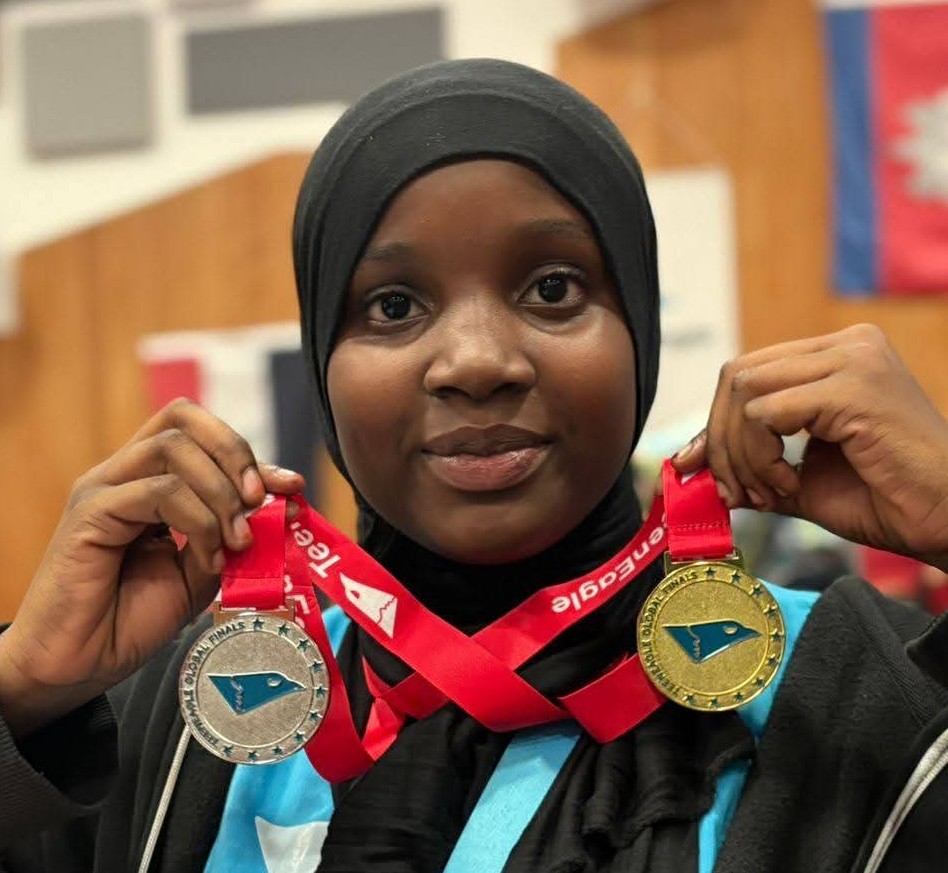A Nigerian former minister has called on the government to recognize a teenager’s global academic triumph with the same enthusiasm and rewards recently granted to national sports teams, sparking fresh debate about prioritizing educational achievements. Isa Pantami, former Minister of Communications and Digital Economy, publicly urged President Bola Tinubu to honor 17-year-old Nafisa Abdullah-Aminu, who outperformed 20,000 students from 69 countries to win the 2025 TeenEagle Global Finals in London, a prestigious English language skills competition.
The Yobe State native, a student at Nigerian Tulip International College, secured the top prize despite competing against participants from English-speaking nations. Pantami, in a detailed Facebook post, praised her “natural talent, dedication, and discipline,” crediting her family and school for fostering an environment that enabled her success. He framed her victory as evidence of Nigeria’s potential to excel academically on the global stage when given adequate support.
The appeal draws direct parallels to recent federal rewards for athletes. Nigeria’s women’s football team, the Super Falcons, received $100,000 per player, three-bedroom apartments, and national honors after winning the 2025 Women’s Africa Cup. Similarly, the D’Tigress basketball team was celebrated for a historic fifth consecutive FIBA AfroBasket title, which secured Africa’s first spot in the 2026 World Cup qualifiers. Pantami argued that academic achievers like Abdullah-Aminu deserve comparable recognition: a $100,000 cash prize, housing, the Officer of the Order of the Niger honor, and equivalent rewards for her English teacher.
“Her achievement highlights what Nigerian students can accomplish with the right opportunities,” Pantami wrote, emphasizing that education forms the “foundation of national development.” He stressed that recognizing scholars would encourage a culture of academic excellence, counterbalancing Nigeria’s stronger emphasis on sports. The call has reignited discussions about resource allocation in a country where athletes often receive lavish state rewards, while academic stars rarely attract similar attention.
Abdullah-Aminu’s win marks a rare instance of Nigerian youth dominating a global academic competition, underscoring disparities in educational investment. While specifics of the TeenEagle competition’s judging criteria were not detailed in Pantami’s post, the sheer scale of participation—20,000 students across six continents—positions it as a significant benchmark for linguistic proficiency.
Analysts suggest Pantami’s appeal aligns with broader calls to reevaluate Nigeria’s merit-based incentives, particularly as the government seeks to address brain drain and strengthen its education sector. However, no official response has been issued by President Tinubu’s administration. The proposal also raises questions about equitable recognition for educators, with Pantami noting that teachers, like sports coaches, play pivotal roles in shaping excellence.
As the story circulates locally and internationally, advocates hope it will prompt policy shifts to elevate academic achievements alongside athletic triumphs, reinforcing education as a “passport to future development” in Africa’s most populous nation.
